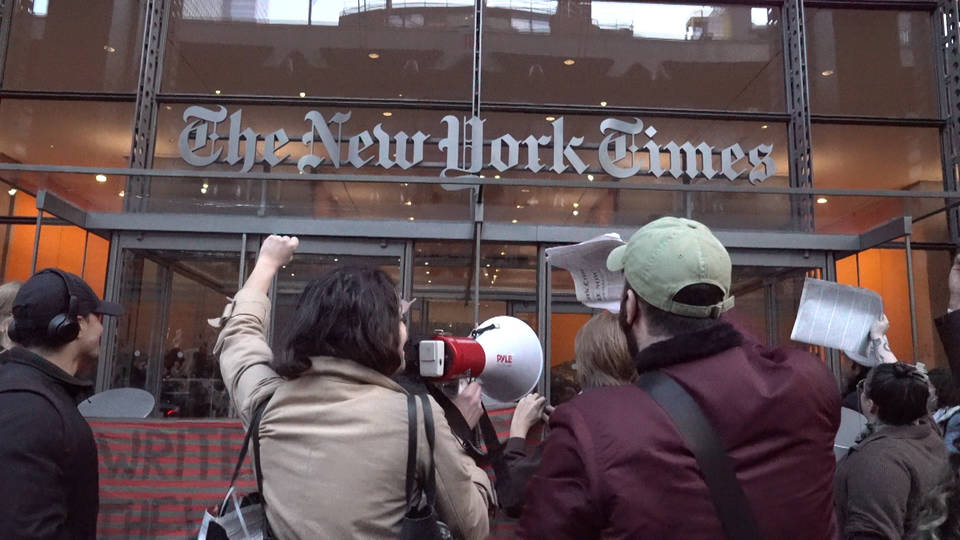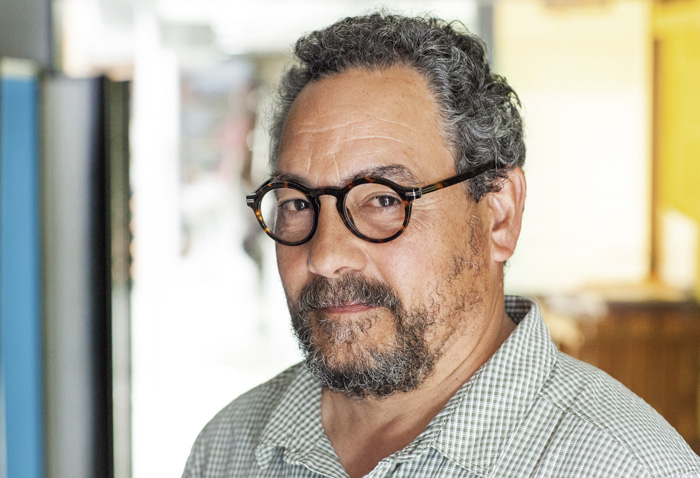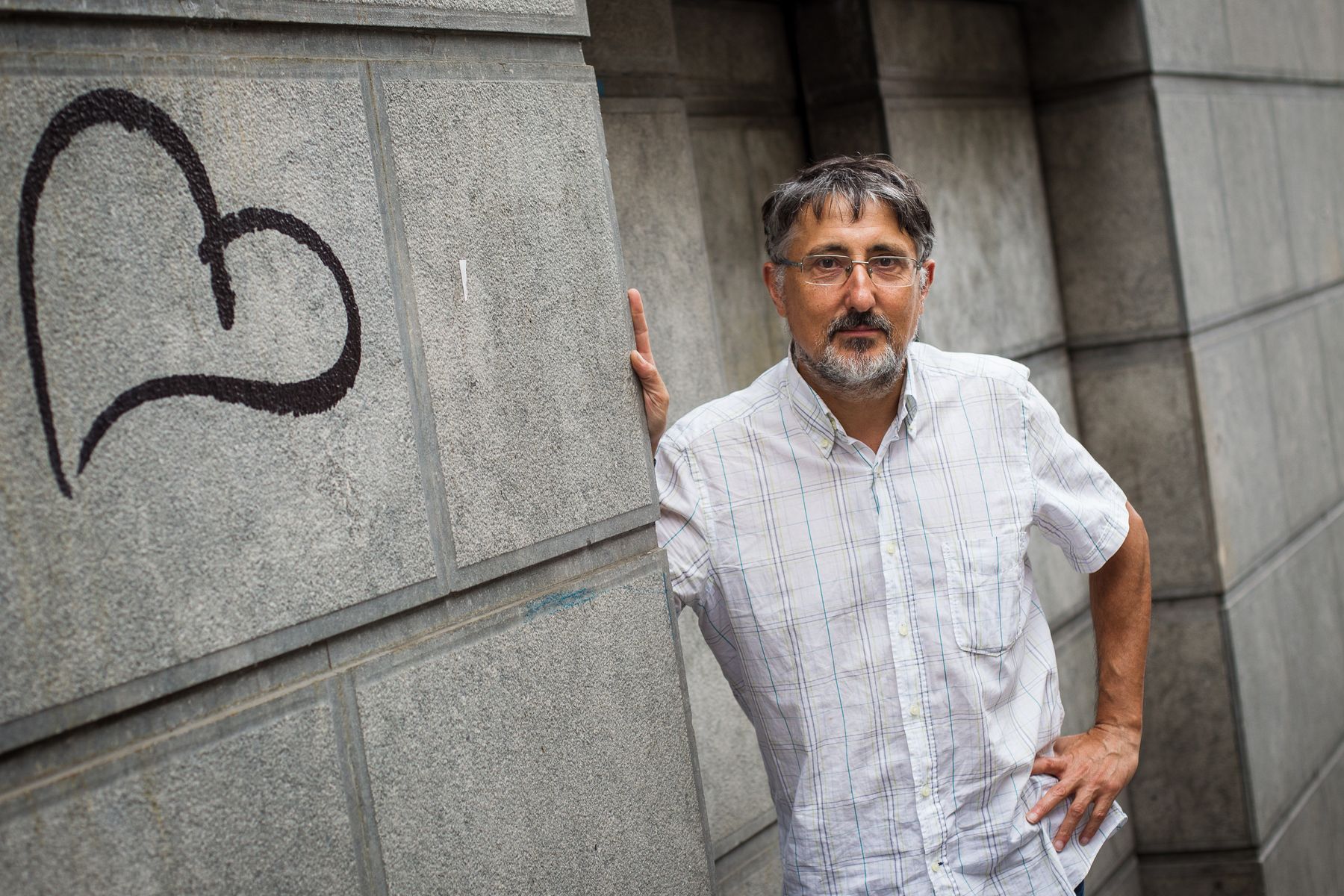The Western media acts as the drivers of war
- Armed militias and civilians are encouraging journalists to fabricate improvised devices that are commonly considered terrorism. This article has been posted by Middle East Ey, here you can see the original.

It has been surprising to see how many Western journalists have encouraged young people who have been preparing Molotov cocktails in Ukrainian cities such as Kiev, including BBC reporters, who are usually prudent.
This would surprise other established resistance movements, particularly in the Middle East. For doing the same they have always been called terrorists.
To see how they defend the "resistance" of Ukrainian civilians, they have surely angered, for example, the Palestinians in small Gaza. The difficulty of Western journalists in keeping identification with Ukrainians calm. In Gaza, they have been in a metal cage for decades because of the Israeli military invader.
Palestinians in Gaza are also preparing their Molotov cocktails. But since they cannot approach the Israeli army, they have to enter the balloons to pass over the steel fence around Gaza and send them to Israel, sometimes setting fire to the camps.
#Kyiv - our report on the city fighting to save itself, with Molotov cocktails and improvised barricades, where lawyers are now manning look-out posts. #Russia Invasion With @Goktay @wburema @N_sosnytska @TwittPirojok pic.twitter.com/lc1viGKUht
— Orla Guerin (@OrlaGuerin) March 2, 2022
No one in the BBC has celebrated these “incendiary balloons” as small acts of resistance. The fault lies with Hamas, the ruler of Gaza, whose political branch has recently been declared a terrorist organisation by the British Government.
Double standards
Palestinians in Gaza have also suffered a 15-year trade blockade by Israel specifically designed to “starve”. Many demonstrators have regularly stepped down a stone – women, children and people in a wheelchair – to the Israeli snipers hidden in the fortress, as a symbolic way of calling for freedom. These demonstrators have on numerous occasions, in response, been shot by the Israeli military who have responded to the appeals.
The Western media is often anguished by the loss of lives or the amputated paws of those targeted by snipers. But no one is encouraging that Palestinian resistance, as it is doing with the Ukrainian. The demonstrators have been greeted as senseless or provocative by Hamas.
Unlike Ukraine, Gaza has no army and its fighters, unlike those in Ukraine, do not receive weapons from the West.
The Guardian came to censure his cartoonist, Steve Bell, when he tried to draw one of the victims of the Israeli snipers, Razan al-Najjar, a nurse who helped the wounded. The newspaper said that the vignette – the then UK Prime Minister, Theresa May, received in London his Israeli counterpart, Benjamin Netanyahu, and then nurse Al-Najjar as a victim of the sacrifice in her rear fireplace – was anti-Semitic.
Given that the media have always been very reluctant to encourage ordinary people to face well-armed soldiers to prevent civilian casualties, why has that policy suddenly been left out in Ukraine?
The double standard is obvious and is everywhere. It cannot be thought that journalists who do so are ignorant or ignorant of the journalistic conventions. Most are veterans in the Middle East war zones, which are hampered by the events in Gaza, Baghdad, Nablus, Aleppo and Tripoli.
More wood to the fire
Britain and other European states have decided to use weapons to feed the fire of the Ukrainian resistance, which will only cause more life to be lost, especially civilians caught by crossfire. One could expect the British media to analyse the ethical implications and hypocrisy of this policy. But no, it's not happening.
In fact, many media outlets have not only pushed for the Ukrainian army to send more weapons, but have also encouraged UK civilians to fight.
That is what has happened after the number 10 of Downing Street [the expression used to designate government headquarters] has moved away from the words of Foreign Minister Liz Truss. He said that the British should be encouraged to go as volunteers of Ukraine’s “international legions”, supposedly to defend Europe.
His attitude clashed with the usual practice of the government, which has regarded as terrorists those who have come to the war zones of the Middle East. For example, Shamima Begum, who left Syria at the age of 15, was taken away from British nationality and denied the right to return for having proposed Minister Truss for Ukraine.
.jpg)
However, this did not discourage the BBC from traveling to Essex County to explain to him how a British army equipment supplier sold cheap material to Ukrainians in Britain to go to the front line. They showed Wozza on television taking off Union Jack's badges to make those uniforms used by Ukrainian militiamen.
Compare this with the treatment of an absolutely peaceful resistance: a campaign of boycott of Israel driven in solidarity with the Palestinians. It's no better than terrorists at a time when the protection of the BDS bell in Europe and the United States is being banned.
“impartiality” committed
It is difficult to remember that, in the midst of confusion with Ukraine, this media monitoring is contrary to its media rules. It is, of course, unthinkable that Britain should ever send arms, for example, to help liberate Gaza.
For this reason, the media will never have to shake their vocal cords with outrage.
And that is that the Western media often echoes the positions against Western governments sending all kinds of aid to Gaza, even when it comes to reconstruction material from the areas devastated by Israel, such as cement. That is because journalists are uncritical of Israeli demands, for example when they say that this humanitarian aid is going to be used by Hamas and that it is going to reinforce "terrorism".
In 2010, for example, the BBC Panoramic programme did not mention or mention that Israel’s attack on the convoy carrying humanitarian aid to the siege of Gaza in international waters was illegal. Nine activists were killed by the Israeli commandos on the boat Mavi Marmara for trying to bring medicines and basic necessities to Gaza, but the dialogue with these men with their faces covered was absolutely uncritical. The BBC showed very little sympathy for this action of resistance against the brutal occupier.
A year earlier, the BBC broke a tradition and refused to report a long-standing relief call, when Israel had already destroyed to bring food and shelter to Gaza. The BBC justified itself by saying that this would call into question its "impartiality", something that in the case of Ukraine seems to do not matter at all.
At the time of the publication of this article, the BBC has not answered questions about these inconsistencies.
Fog of war
It is known that the battlefield is usually immediately submerged in the fog of war. That's why the editors warn young journalists that they have to wait for the tests and be careful with the propaganda. In practice, however, it is easy to see what the sympathies of the media are, hidden behind the fragile pretensions of objectivity, at the moment and in the benefit of those who abandon these norms, and on what side the narrative is accepted quickly and uncritically.
As far as the Middle East is concerned, it is clear that the demands of the United States, Europe and Israel have a great deal of echo, even when their truthfulness is questioned.
There have been many lies fuelled by the media. For example, Israel should ask the Palestinians expelled in 1948 to return home. Saddam Hussein's troops took the children out of the incubators in Kuwait and the Iraqi leader supported his enemy Al Qaeda in the attacks of 11 September 2001. Muammar Gadaffiren says Viagra was taken by Libyan soldiers to rape civilians in Benghazi. Russia had paid the Taliban to kill American soldiers in Afghanistan.
These deceptions and inventions were taken over by all the headlines when they were used as propaganda and removed much later, discreetly.
In the case of Ukraine, a similar practice appears to be spreading. The Western media disseminated information that was nothing more than fiction, not to mention sources. It was said there that Russian troops had killed thirteen Ukrainian soldiers on the island of the Snake, in the Black Sea. A false audio tape was opened in which the Ukrainians allegedly mistreated the Russian invaders. The Government of Ukraine announced that each of them would be awarded the title of Hero of Ukraine.
In this case, however, the information from the Russian media was true. 82 Ukrainian soldiers had surrendered. They were all saved and saved. Another example: a video game clip expanded enormously, where you saw a heroic Ukrainian pilot, called the Kiev Ghost, knocking down Russian airplanes and helicopters.
Misinformation has been even more aggressive in the accounts of Western social networks, and most are designed to generate sympathy for Ukraine and hostility towards Russia.
Ideological bleaching operation
But what we're seeing is more than the media's hunger for stories and falsehoods without evidence, always against Russia. And it's also more than media sympathy for Ukrainian "resistance," something that denies other groups fighting oppressors, when these oppressors are the West and their allies.
Western media are filled with even more tribal convents than military governments and generals. It appears that the "more war" chorus of the media is serving for ideological laundering, clearing the way for governments to take anti-democratic and extremist propaganda measures.
The newspaper Mail on Sunday, Dan Hodges, has constantly called for a closed airspace for aircraft in Ukraine, despite the fact that Boris Johnson himself has also ruled it out, for obvious reasons. That would lead Europe to a direct confrontation with the Russian air forces and to a risk of confrontation with a nuclear power.
However, Hodges described anything that goes against that idea as “an action similar to the calming we had in Hitler in 1938.” The invasion of Russia comes after almost a decade when the United States has been building ever closer military relations with its neighbours by taking advantage of NATO.
.jpg)
Well or badly, Moscow interpreted NATO’s behaviour in its “area of influence” as an aggressive manoeuvre by the United States and its allies. That Russia cannot and cannot be granted any concessions – the only ‘moral option’, as Hodges calls it, is to take the risk of a nuclear war – it must be regarded as a belligerent provocation, because that is the case.
Richard Engel, the leading foreign correspondent for NBC News, tweeted what he saw as “risk calculations” and “moral dilemma”: Was the West going to bomb a convoy of Russian tanks towards Kiev? Apparently, seeing that the situation was not moving, he asked: "Is the West looking silently as things happen?" ".
Absolute hypocrisy
Condeleeza Rice, one of the leaders of the criminal invasion of Iraq, has not been questioned by the media for his hypocrisy when he said that “invading a sovereign nation is a war crime.” If that is the case, and international law says so, they should judge Rice in The Hague.
Russia's intervention in Ukraine has gotten much more coverage, and condemnation, in just 24 hours than the US-Saudi war on Yemen has gotten since it started nearly 7 years ago 377,000 Yemenis have died. Saudi bombing now is the worst since 2018 https://t.co/LKyeW0LsNB
— Benjamin Norton (@DiamonNorton) February 25, 2022
Or, what about the attitude taken by the media when it was known that the bombings of the second city of Kharkov in Ukraine had killed “dozens” people? Compare this to the attitude of those media during the Shock and Awe bombing campaign, in which thousands of people died in the early hours of the US invasion in 2003.
And what about the complicit silence of the media in the face of the bombings of Saudi Arabia – with British aircraft and explosives – against civilians in Yemen for many years, which has caused a humanitarian disaster that is hard to imagine? Those who face the horrors of Saudi Arabia in Yemen are not heroes for our media and are considered puppets of Iran.
Veteran BBC journalist Jeremy Vin said Russian soldiers recruited "deserve to die" by wearing the Russian army uniform. Surprised by these statements, he responded to a person who called his program: “This is life.”
Does Vin believe that British and American troops, unlike professional soldiers, Russian recruits, deserve to die when they illegally invaded Iraq? If the answer is negative, why?
The racist tone of much of the Western information tracking is not difficult to see. Many commentators and interviewees repeat that refugees from Ukraine are “European”, “civilised”, “yellow hair and blue eyes”.
State propaganda
And Western war-propaganda, exaggerated and often exasperated, comes to a large extent from the British State television channel. Meanwhile, Europe has banned the issuance of the Russian RT chain, while Silicon Valley has removed it from the Internet.
There is no doubt that the RT in general has an editorial line in line with the objectives of Moscow's foreign policy, just as the BBC has an editorial line that drives the objectives of British foreign policy.
The problem of the Western public is not an overexposure to Russian state propaganda, but a constant exposure to ruthless Western state propaganda.
If we are looking for peace – and at the moment there are very few signs – the Western media must be held accountable for this absurd patriotism, for its excesses, for its credulity, for its double morality and for its deceit. But who is going to act as the guardian of the Fourth Power that is supposed to be vigilant?
Right now, we need Russian voices to understand what Putin thinks and wants, not what the BBC’s “major international correspondents” think about what Putin wants. We need appropriate sources of information to quickly identify “fake news”, especially from the West, not from Russia.
And above all, we have to put an end to our racist view of the world, where we are always Good and other Bad, where our suffering matters and not the suffering of others.
---------------------
* Jonathan Cook is the author of three books on the Israeli-Palestinian conflict, and Martha Gellhorn is the author of a very special author.
Espainiako Atzerri Ministerioak Vianako Jauregia Kazetaritza Saria sortu du, Espainiako Estatuari buruzko irudi positiboa ematen duten atzerriko kazetarientzat. Kataluniako urriaren 1eko erreferendumaren kontra erabilitako bortizkeriak nazioarteko medioetan asko kaltetu zuen... [+]
Valentzian RTVEk daukan egoitzako albistegien editore Arantxa Torresek dimititu egin du asteartean.
Mujeres RTVE plataformak, zeinak Espainiako Estatuko komunikabide publikoko emakumezko langileak biltzen dituen, korporazioaren baitan ematen den informazioaren manipulazioa salatzeko kanpaina bat abiatu du sarean #AsíSeManipula traolarekin. Komunikabide... [+]
Every time I've turned on television, I've seen perfume commercials, for the umpteenth time. I'm starting to think that our breath is coming in if we have to perfume ourselves so much. But at the same time, these spots don't represent smell. It's hard for smells (any of them) to... [+]





















